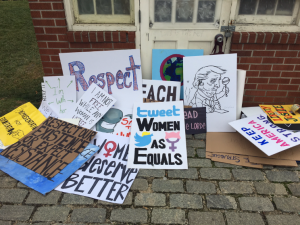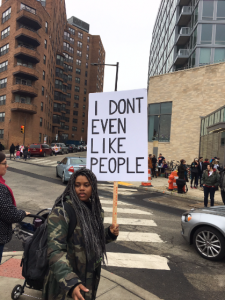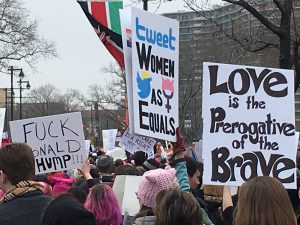Not really sure if this should be called a lecture as it was part of a panel presentation where we were allotted 15 minutes each and then questions. The setting was interesting as it was part of the Swedish Parliaments annual conference about the future and the people asking the questions were all politicians. So for my 15 minutes (of fame?) I chose to expand on the ill effects of politics ignoring technology (or taking it as a stable, neutral given).
The presentation began with a quote from Oliver Wendell Holmes jr.
It cannot be helped, it is as it should be, that the law is behind the times.
What I wanted to do was to explain that the law has always been seen as playing catchup. This is not a bug in the law it is a feature of the law. Attempting to create laws that are before the time would be wasteful, unpopular and quite often full of errors about what we think future problems would be. I wanted to include a quote from Niels Bohr
Prediction is very difficult, especially about the future.
But time was short and I needed to avoid meandering down interesting – but unhelpful – alleyways.
Instead I reminded the audience that many of our fundamental rights and freedoms are 300 years old and, despite being updated, they are prone to being increasingly complex to manage or even outdated when the basic technological realities have changed. This was the time of Voltaire who is today mainly famous for saying
I disapprove of what you say, but I will defend to the death your right to say it
(Actually he never said this. The words were put in his mouth by the later writer Evelyn Beatrice Hall. But lets not let the truth get in the way of a good story.)
The period saw the development of fantastic modern concepts such as democracy, free speech and autonomy may be seen as products of the enlightenment. They remain core values in spite of the fact that our technological developments have totally changed the world in which we live. For the sake of later comparison I added that the killer app of the time was the quill. Naturally there were printing presses but as these are not personal communication devices they provide easier avenues of control for states. In other words developing concepts of free speech must be seen in the light of what individuals had the ability to do.
As I had been asked to talk about technology and society I chose to exemplify with the concept of copyright which was launched by the Statute of Ann in 1710. In Sweden copyright was introduced into law in the 19th century and the most recent thorough re-working of the law was in the 1950 with the modern (and present) Swedish copyright Act entering into the books in 1960. The law has naturally been amended since then but has received no major reworking since then. The killer app of the 1960s? Well it probably was the pill – but that’s hardly relevant, so I looked at radio and tv. The interesting thing about these is that they are highly regulated and controlled mass mediums. While they are easy to access for the consumer, they are hardly platforms of speech for a wider group of people.
Moving along to the Internet, the web, social media and the massive increases in personal devices have created a whole new ball game. These have create a whole new way of social interaction among citizens. The mass medium of one to many is not the monopoly player any more. So what should the regulator be aware of? Well they must take into consideration the ways in which new technologies are changing actual social interaction on many levels and also the changes in fundamental social values that are coupled with our expectations on the justice system.
The problem is that all to often regulators (as they are ordinary people) tend to take as their starting point, their own user experience. In order to illustrate what I meant I include one of my favorite Douglas Adams quotes (it’s from The Salmon of Doubt)
Anything that is in the world when you’re born is normal and ordinary and is just a natural part of the way the world works. Anything that’s invented between when you’re fifteen and thirty-five is new and exciting and revolutionary and you can probably get a career in it. Anything invented after you’re thirty-five is against the natural order of things.
Therefore it is vital not to ignore the role of technology, or to underestimate its effects. Looking at technology as – simply technology – i.e. as a neutral tool that does not effect us is incredibly dangerous. If we do not understand this then we will be ruled by technology. Naturally not by technology but by those who create and control technology. Law and law makers will become less relevant to the way in which society works. Or does not work.
In order to illustrate this, I finished off with a look at anti-homless technology – mainly things like park benches which are specifically designed to prevent people from sleeping on benches. In order to exclude an undesirable group of people from a public area the democratic process must first define a group as undesirable and then obtain a consensus that this group is unwelcome. All this must be done while maintaining the air of democratic inclusion – it’s a tricky, almost impossible task. But by buying a bench which you cannot sleep on, you exclude those who need to sleep on park benches (the homeless) without even needing to enter into a democratic discussion.
If this is done with benches, then what power lies in the control of a smart phone?
Here are the slides used with the lecture.




